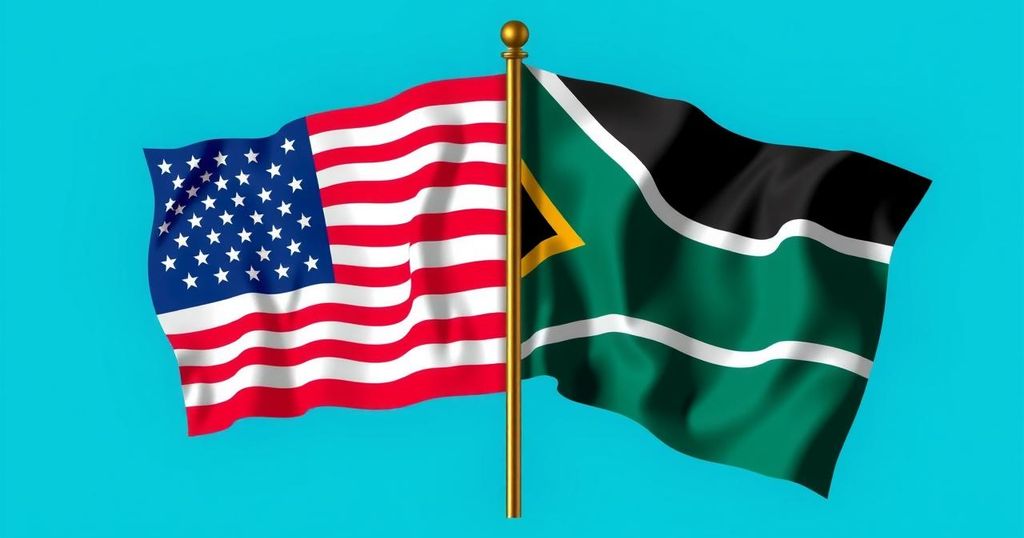The expulsion of South African Ambassador Ebrahim Rasool highlights ongoing tensions between the U.S. and South Africa, revealing historical complexities in their relations. Rasool’s remarks against the Trump administration triggered diplomatic conflict, with significant economic repercussions for South Africa, especially in healthcare and trade. The evolving dynamics suggest critical implications for international relations moving forward, raising questions about the future of their strategic partnership.
The recent expulsion of South African Ambassador Ebrahim Rasool from the United States has unveiled complexities in U.S.-South Africa relations. His comments targeting the Trump administration prompted this diplomatic incident, reflecting ongoing challenges in their partnership. The historical backdrop reveals a relationship marked by policy differences while still maintaining functional ties. However, escalating diplomatic tensions pose questions about potential outcomes, such as a lasting fracture or a recalibration of strategic alliances.
Ambassador Rasool, a seasoned diplomat, previously served under President Obama. His tenure included considerable engagement in U.S. domestic politics, rooted in his anti-apartheid activities. Tensions escalated following his remarks that linked the MAGA movement to white supremacy, leading Secretary of State Marco Rubio to label Rasool as a “race-baiting politician.” Increased scrutiny of South Africa’s foreign policy and its criticism of Israel further complicated relations.
Historically, U.S.-South Africa relations have navigated stark ideological divides since the fall of Apartheid. Despite significant policy differences, particularly regarding support during the Apartheid era, the two nations have forged mutually beneficial relations since the early 1990s. Notably, South Africa’s African National Congress perceives external support during the liberation struggle differently, emphasizing contributions from communist allies, impacting its foreign policy approach to the West.
Under the Biden administration, the relationship has faced challenges, notably regarding Russia’s invasion of Ukraine. South Africa’s neutral stance contrasted sharply with U.S. condemnation, leading to further tension. The docking of a Russian vessel in South Africa raised alarm within U.S. circles, further straining diplomatic relations amid a backdrop of military exercises involving Russia and China, prompting reevaluation from U.S. lawmakers.
The economic stakes for South Africa are significant, with the U.S. as its second-largest export market. In 2024, exports to the United States are valued at approximately $14.7 billion. If South Africa loses eligibility under the African Growth and Opportunity Act (AGOA), it could face economic downturns and significant impacts on its HIV treatment programs and healthcare services that rely heavily on U.S. funding.
The implications of the recent diplomatic scuffle extend beyond immediate relations. The Trump administration’s approach aims to deter other nations from opposing U.S. interests, sending a message against challenging Washington. However, this policy risks fostering distrust among nations of the Global South, potentially exacerbating diplomatic rifts. The long-term consequences of such actions could deepen divisions and complicate international cooperation in an era increasingly defined by multipolarity.
The expulsion of Ambassador Ebrahim Rasool signals deep-rooted complexities in U.S.-South Africa relations, historically marked by both cooperation and contention. The economic implications for South Africa are substantial, particularly given its dependency on U.S. markets and aid. The ongoing tensions, especially regarding external geopolitical alignments, reveal a precarious balance in maintaining diplomatic ties. Looking forward, the potential for both countries to recalibrate their relationship in light of these tensions remains uncertain, with significant ramifications for international diplomacy.
Original Source: www.csis.org






